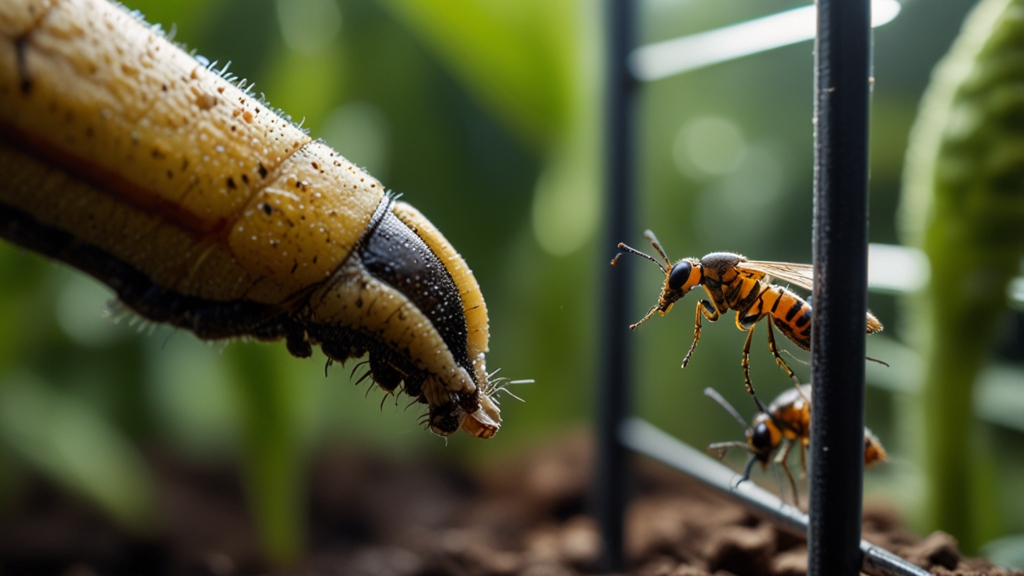The Future of Insects in Agriculture: Can We Trust Our Tiny Allies?
As the global population continues to rise and environmental challenges become more pressing, the agricultural sector is under immense pressure to innovate. One of the most intriguing solutions that has caught the eye of researchers and farmers alike is the use of insects in agriculture. These tiny creatures, often seen as pests, are now being re-evaluated as potential allies in enhancing crop productivity, managing pests, and even improving soil health. But can we truly rely on insects to help secure the future of agriculture?
The Role of Insects in Integrated Pest Management (IPM)
Integrated Pest Management (IPM) is a comprehensive approach to pest control that combines different strategies to reduce the reliance on chemical pesticides. Beneficial insects play a pivotal role in this system. Predatory insects such as ladybugs and lacewings are natural enemies of many common agricultural pests. These beneficial insects can significantly reduce pest populations, thereby minimizing the need for harmful chemical interventions.
"Insects like ladybugs are voracious predators of aphids, which are notorious for damaging crops. By introducing ladybugs into agricultural systems, farmers can achieve natural pest control and reduce their dependence on chemical pesticides," says Dr. Jane Smith, an entomologist at the University of Agriculture.
Moreover, the implementation of IPM strategies can lead to sustainable pest management, reducing environmental damage and promoting biodiversity. This approach not only protects crops but also fosters a more resilient agricultural ecosystem.
Pollination: Beyond the Bees
When thinking about pollinators, honeybees often come to mind. However, a wide range of insects, including bumblebees, butterflies, and even certain types of beetles, contribute to pollination. These insect pollinators are crucial for the reproduction of many plants, thereby ensuring the production of fruits, vegetables, and seeds.
The decline in honeybee populations due to Colony Collapse Disorder (CCD) has highlighted the importance of diversifying our pollinator base. Encouraging a variety of insect pollinators can create a more robust and resilient agricultural system. Furthermore, by planting a diverse array of flowering plants, farmers can attract a wider range of pollinators, ensuring more effective and reliable pollination services.
Insects as Soil Engineers
Soil health is a critical factor in agricultural productivity. In this domain, insects like earthworms and beetles serve as natural engineers. These insects help in breaking down organic matter, aerating the soil, and facilitating nutrient cycling. Their activities improve soil structure and fertility, which are essential for plant growth.
"Beetles and earthworms play a significant role in maintaining soil health. Their burrowing activities help in water infiltration and root penetration, which are vital for crop growth," explains Dr. Michael Johnson, a soil scientist.
By promoting the presence of beneficial soil insects, farmers can enhance soil quality and boost crop yields. This natural approach to soil management can reduce the need for synthetic fertilizers, thereby promoting more sustainable agricultural practices.
The Challenges and Risks
Despite the promising potential of insects in agriculture, there are several challenges and risks that need to be considered. The introduction of non-native insect species can disrupt local ecosystems and lead to unforeseen consequences. Additionally, the over-reliance on a single type of beneficial insect can create an imbalance, making the agricultural system vulnerable to pests.
Another concern is the public perception of using insects in agriculture. Many people are squeamish about insects and may have reservations about consuming products grown with the help of these creatures. Educating the public about the benefits and safety of using insects in agriculture is crucial for gaining broader acceptance.
Conclusion
Insects hold immense potential as allies in agriculture, offering natural solutions for pest control, pollination, and soil health. However, careful consideration and management are essential to harness their benefits while mitigating risks. As research continues and sustainable practices evolve, insects could play a vital role in securing the future of agriculture. By embracing these tiny allies, we can move towards a more sustainable and resilient agricultural system, capable of meeting the growing demands of a global population.









